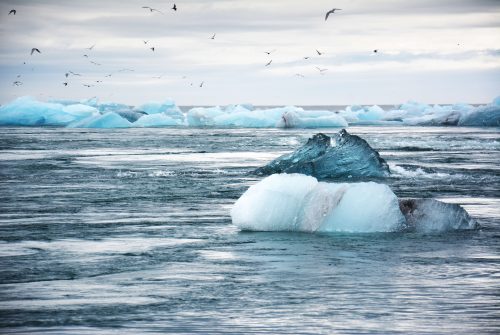COP24 – told by who was there
25 January 2019 | Written by La redazione
The UN climate conference from which important responses for the fight against climate change were expected, took place in Katowice, Poland

It has been two intense weeks, made of negotiations and discussions, those that involved the approximately 30 thousand delegates from all over the world who took part in the Cop24, the UN climate conference held in Katowice, Poland, from December 3rd to 14th. We expected a lot from this meeting, also because the situation photographed by the latest research leaves little room for interpretation: there is little time left to save the planet. Some countries, however, do not seem to have understood the gravity of the situation and during the Conference they either pulled back or even made obstruction. But what really happened during the two weeks of Cop24? What are the results of this meeting? We asked Eleonora Cogo, Senior Scientific Manager of the Climate Simulation and Prediction division of the Euro-Mediterranean Center on Climate Change, CMCC.
The Cop, or Conference of the Parties, is an annual meeting bringing together representatives of the signatory countries of the UNFCCC, the United Nations Convention on Climate Change, signed at the 1992 Rio de Janeiro Earth Summit. Starting in 1995, the year of the first COP, which took place in Berlin, the delegates analyze the situation and discuss the actions to be taken to tackle climate change.
The Cop24 came a few months after the publication of the report by the Intergovernmental Panel on Climate Change (IPCC), which denounced the seriousness of the situation and called for a quick and effective change of course to reduce carbon dioxide emissions, among main gases responsible for the greenhouse effect and the consequent increase in temperatures. The most optimistic therefore hoped in the common and total will to accelerate the decarbonization process, accepting the suggestions contained in the report. But not all were of this opinion: “United States, Saudi Arabia, Russia, and Kuwait – Eleonora Cogo explained to us – just wanted to ‘take note’ of the IPCC report and not just “welcome” it, this would mean full recognition of the results and recommendations contained in the report”.
The Cop24 happy note regards the definition of the so-called “Rulebook”, the package of rules that will make the Paris Agreement operational. “This was the main objective of the conference – continued Cogo – and a result that is not taken for granted, given the still very distant positions on the eve of the summit on crucial issues such as the differentiation between industrialized and developing countries, beyond to the numerous technical complexities contained in the 300 pages of text to be defined. It should be noted that all decisions are taken unanimously, so only one country can block the agreement, as happened in the case of Brazil, which opposed stringent rules to avoid double counting of emissions in voluntary market mechanisms. The decision on this point of the Agreement is postponed to the next year.”
“Among the most important results – Cogo continues – there is certainly the definition of common rules for communicating the emission reduction commitments and to record the results achieved, this allows both to compare actions over time and the contributions of individual countries. From 2024, all countries will use the same reporting system to provide information on their greenhouse gas emission levels and to monitor the implementation/achievement of their emission reduction targets. Furthermore, developed countries will also have to provide information on the support provided to developing countries”.
This, however, can not be a point of arrival but a starting point: “The IPCC report – added Cogo – says that the current emissions reduction commitments undertaken by the countries are not sufficient to limit the warming of our planet at 1.5 ° C. The current targets would lead to 52-58 GtCO2 per year in 2030, about twice as much as 25-30 GtCO2 in 2030 under the IPCC scenarios to avoid a global temperature rise above 1.5 ° C. ”
Much, as often happens, will go from loans and investments of individual countries. Even on this issue, unfortunately, there does not seem to be any compactness: if from a high point, the industrialized countries have committed themselves to mobilize $100 billion a year by 2020 for the climate, on the other some states have pulled back. To cite a few examples, Australia has announced that it will no longer contribute to the Green Climate Fund, for which there will be a new phase of fundraising in 2019, while COP Germany and Norway have announced their intention to double their contributions at the bottom.
The role of research. In this context, not very reassuring on the political level, new responses are expected also from scientific research. Scholars from all over the world have the delicate task of increasing the awareness of governments on the criticality of the situation, through new research and publications and trying to find innovative solutions to try to stem the problem.
The Euro-Mediterranean Center on Climate Change, CMCC, also participated in the COP24 with three side events, during which the main results and innovative ideas of the INNOPATHS, CLARA, and COACCH projects were illustrated. “The CMCC seeks to bring together different skills and roles, to foster the collaboration that is necessary to tackle urgent and complex problems such as those related to climate change – concluded Eleonora Cogo – In particular, Katowice discussed optimal strategies for a low-carbon company, the role of finance to build services and infrastructure that can protect us from the impacts of climate change, the role of forests and the danger of fires. All topics in which the climate sciences make an essential contribution to decision-makers in both the public and private sectors can make scientifically sound decisions. “








